I am not a crook
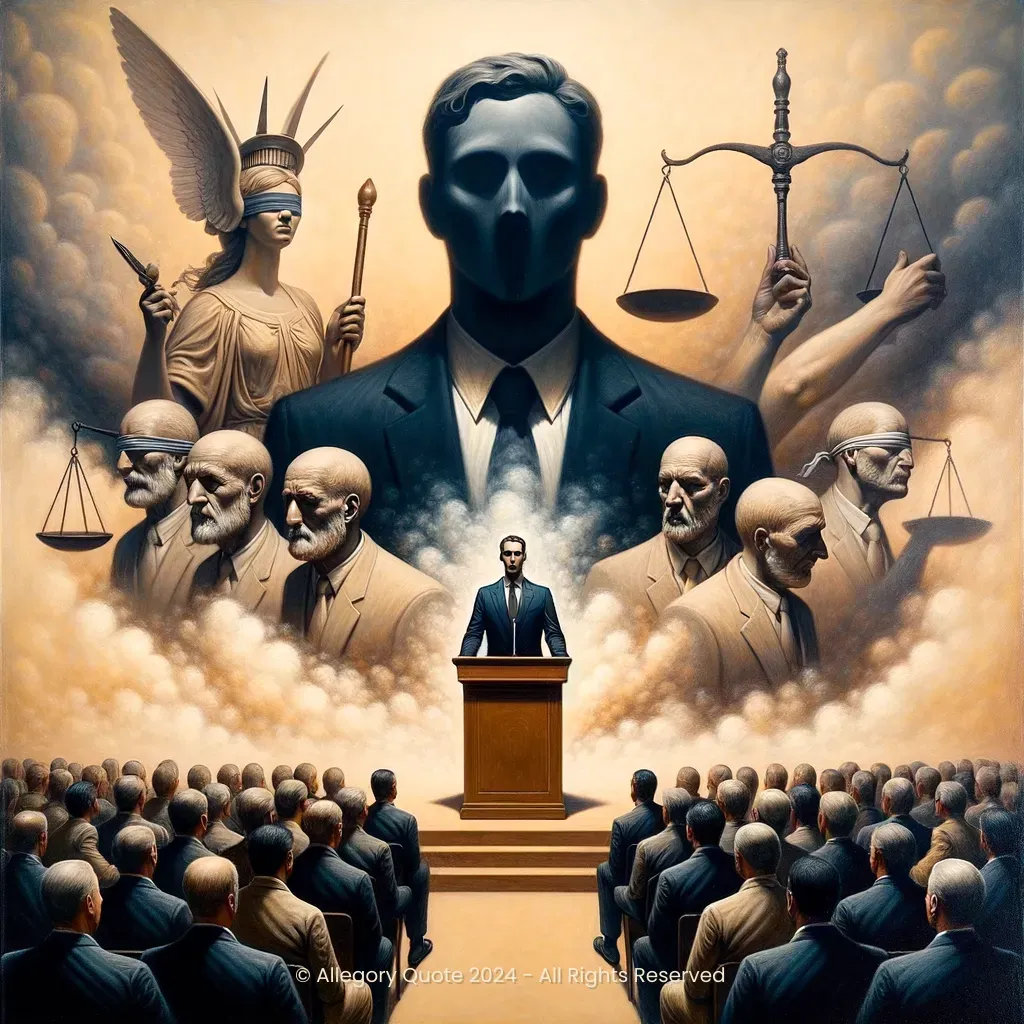
0
0
0
0
- Meaning
- The phrase "I am not a crook" was Nixon’s attempt to reassure the American public of his honesty and integrity, despite mounting evidence of his involvement in the Watergate scandal. It represents a denial of guilt, emphasizing his ongoing assertion that he had not engaged in illegal activities. Philosophically speaking, it touches upon themes of denial, credibility, and the morality of leadership. Historically, it’s a poignant example of the clash between public perception and personal integrity.
- Allegory
- The leader at the podium symbolizes Richard Nixon and his public declaration of innocence. The shadowy figure behind him represents the hidden truths and scandals that marred his presidency. Symbols of justice like scales and Lady Justice allude to the legal and moral scrutiny he faced. The ghostly script of his words fading into the air emphasizes their ephemeral and questionable nature, while the skeptical crowd illustrates public doubt and the fractured trust between a leader and the people. The light versus shadow contrast highlights the moral ambiguity and the persistent struggle between honesty and deceit.
- Applicability
- This phrase emphasizes the importance of maintaining personal integrity and the consequences of public mistrust. In personal life, it serves as a reminder that one's actions and how they are perceived publicly can have long-lasting effects. Upholding honesty and transparency in daily interactions builds trust and credibility, which are vital in both professional and personal spheres.
- Impact
- “I am not a crook” has become a cultural touchstone, symbolic of political scandal and denial of wrongdoing. It is often cited in discussions of political integrity and used as a rhetorical device to denote protestations of innocence amidst scandal. The phrase has also permeated popular culture and media as a catchphrase denoting suspect declarations of innocence.
- Historical Context
- Nixon made this statement during a televised press conference on November 17, 1973. The historical context is crucial; it was during the investigations of the Watergate scandal, where multiple members of Nixon's administration were implicated in illegal activities, leading to one of the most significant political scandals in American history.
- Criticisms
- Criticisms of this phrase center on Nixon's credibility. Many viewed his statement as blatantly dishonest due to subsequent revelations proving his involvement in the Watergate scandal. Critics argue that it exemplifies the disconnect between public statements and private actions in politics, highlighting a broader issue of accountability in leadership.
- Variations
- Variations such as “I did not break the law” or “I am innocent” are seen in various contexts and cultures. In different cultural contexts, such phrases may be interpreted against local historical and political backdrops, sometimes representing a defense mechanism in the face of corruption or scandal.
-
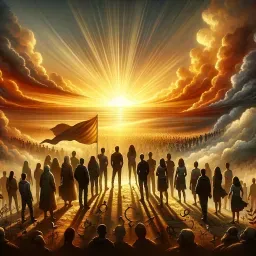
Our long national nightmare is over.
-

Yesterday is not ours to recover, but tomorrow is ours to win or lose.
-

We must adjust to changing times and still hold to unchanging principles.
-

The buck stops here.
-
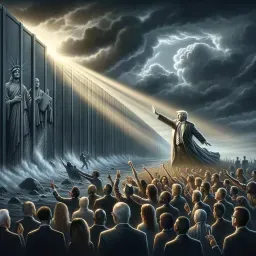
Mr. Gorbachev, tear down this wall!
-

Ask not what your country can do for you – ask what you can do for your country.
-
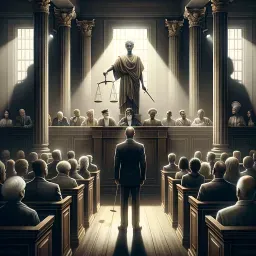
I did not have sexual relations with that woman.
-

Politics, when I am in it, it makes me sick.
-
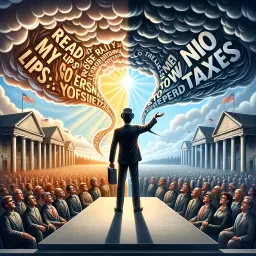
Read my lips: no new taxes.
-

The only thing we have to fear is fear itself.
-

You never know how strong you are, until being strong is your only choice.
No Comments